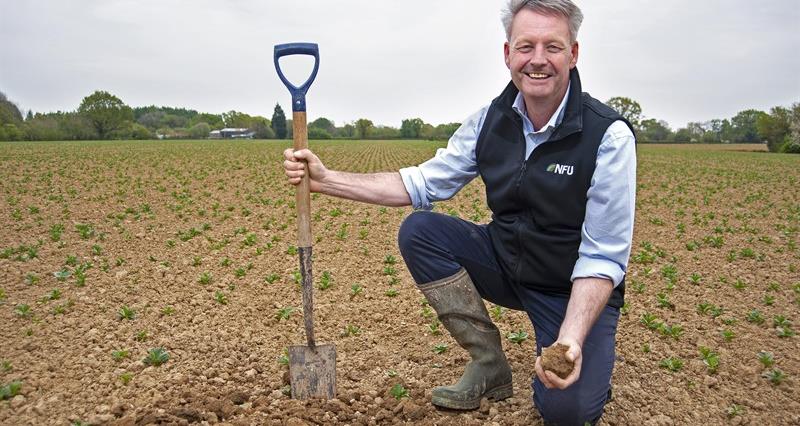The report, published on World Soils Day 2023, suggests the need for statutory targets on soil health, which would give soil health the same legal importance as water and air quality.
It also called on clear and measurable targets for improving soil health across England, such as a regulatory framework in place by 2030.
, the committee welcomed a number of the government's responses, particularly the focus on soil management, the recognition and commitments to soil health indicators and the increased payments for environmental efforts.
However, concerns over the lack of specific deadlines for key commitments and vague responses to other recommendations were made clear, pointing to unclear plans for soil data and a lack of clarity around addressing issues across the food supply chain.
, where he was queried on the challenges faced by farmers when trying to balance the needs of soil whilst also running a farm business.Â
"By working together to better preserve and enhance this most valuable national resource, we can make significant progress towards our goal of net zero by 2040, while delivering for the environment and continuing to produce sustainable climate-friendly food.”
NFU Environment Forum chair Richard Bramley
Recognising the value in SFI payment uplift to the agricultural sector, Richard welcomed the commitments to improving actions on soil health management, development of soil health indicators.
Both the full report and the government's response can be read at:
Key areas for policy development
In their response to the report, the government have indicated five key areas of their intended direction for the development of policy around soils. This includes:
- Soil data
- Soils strategy and leadership
- Incentivising sustainable soil management
- Soil regulations
- Local skills and guidance
Utilising data from the National Ecosystem Assessment Program, the government intends to establish a national soil health baseline by 2028 – indicating the potential incentivisation of data sharing through SFI agreements.
This data, in combination with other schemes such as the NCEA (Natural Capital and Ecosystem Assessment Programme) holds the potential to support the development of assumptions regarding the state of England's soils on both national and regional scales, marking a significant step towards informed environmental management. »ĘĽŇ»ŞČËis currently working to understand how this data will be utilised by Defra moving forward.Â
Committing to the publication of the Land Use Framework in 2024, Defra have indicated their views on target-setting as an iterative process, built upon over time, in line with the development of evidence and understanding. In response to the committee calls to place soils on the same level as air and water, the government highlighted their ongoing work around the assessment of soil regulations.
Richard said: “As highlighted in our own Foundation of Food report, by working together to better preserve and enhance this most valuable national resource, we can make significant progress towards our goal of net zero by 2040, while delivering for the environment and continuing to produce sustainable climate-friendly food.”
Developing local skills and delivering guidance
In addition to outlining intentions to enhance support through collaboration with the agricultural sector, Defra has emphasised its plans to introduce a T Level qualification for Agriculture in partnership with the TIAH (The Institute for Agriculture and Horticulture).
Find out more about the new T Level qualification in agriculture: T Levels – vocational training in agriculture is changing
In addition to this, Defra have indicated their continuing efforts to refine the SFI handbook and create sector-specific supplementary products, aiming to improve accessibility. To aid in defining the best options for farmers they are developing online tools to support farm businesses in filtering out irrelevant actions streamlining processes and facilitating informed decision-making.


